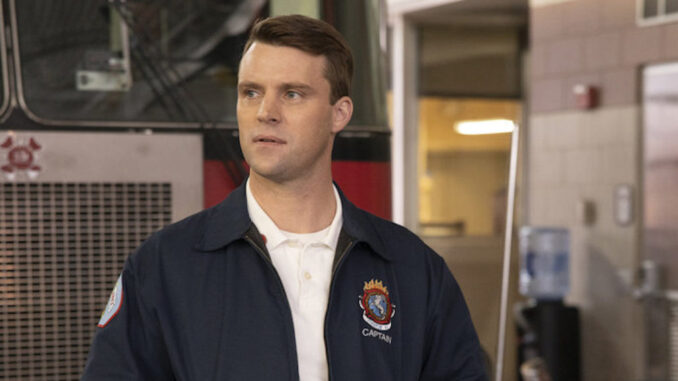
The Shifting Sands of Firehouse 51: Navigating Big Cast Departures
The enduring appeal of long-running television dramas lies in their ability to build a world so rich, and characters so relatable, that they become almost like family. We invest in their triumphs, mourn their losses, and celebrate their growth. For a show like NBC's Chicago Fire, which has anchored the "One Chicago" universe for over a decade, this connection runs particularly deep with the men and women of Firehouse 51. Thus, when a major cast member departs, it's more than just an actor leaving a job; it's a seismic shift that ripples through the narrative tapestry, deeply impacting both the fictional world and its devoted viewership. While specific character names like "Kyri Lockett Bradway" or generic identifiers such as "MD07" might hint at the general phenomenon of exits, the true impact is best understood through the very real, often emotional, departures that have shaped Chicago Fire's journey.
The reasons behind a "big cast departure" are as varied as the characters themselves. Sometimes, an actor seeks new challenges, as was the case with Jesse Spencer, who played Captain Matthew Casey, a central figure since the pilot. After ten seasons, Spencer's decision to leave was a personal one, driven by a desire for a change of pace and to spend more time with family. This kind of exit, while heartbreaking for fans, often feels organic to the actor's career trajectory. Other times, the character's storyline dictates a departure, allowing for a natural, albeit painful, evolution. Monica Raymund's exit as paramedic Gabriela Dawson, who moved to Puerto Rico for humanitarian work, exemplified a character reaching a crossroads and choosing a new path, leaving behind a complex legacy and a broken heart for her on-screen husband, Casey.
Perhaps the most impactful and dramatically illustrative departures, however, are those woven into the narrative as tragic events. The death of Leslie Shay (Lauren German) in the Season 3 premiere remains one of Chicago Fire's most pivotal moments. Her sudden, brutal end in a building explosion wasn't an actor's choice for a new role; it was a deliberate creative decision designed to inject raw, irreversible trauma into the fabric of Firehouse 51. Shay’s death served as a powerful catalyst, propelling Severide into a dark spiral of grief and forcing Dawson to confront the dangers of her profession head-on. Such exits fundamentally alter the emotional landscape of the show, proving that no character, no matter how beloved, is truly safe.
The immediate aftermath of a major departure is invariably a period of readjustment, both within the fictional firehouse and among the audience. For the characters, a void is left – a space that must be filled, physically and emotionally. When Casey left, Firehouse 51 lost not only a truck lieutenant but a moral compass, a steady hand. The remaining characters, particularly Stella Kidd, had to step up to fill leadership roles, driving new storylines and showcasing their own growth. Similarly, Shay’s death reshaped the dynamics of Ambulance 61, eventually leading to Brett becoming the senior paramedic, a role she blossomed into over many seasons. These changes, while born of loss, often push the narrative into new, sometimes unexpected, directions, preventing stagnation and ensuring the show remains vibrant.
For the viewer, a significant cast departure often feels like a mini-grief process. We've spent countless hours with these characters, inviting them into our homes week after week. Their exits can evoke feelings of sadness, frustration, or even anger at the perceived loss. Online forums and social media explode with discussions, debates, and lamentations. Yet, the resilience of the Chicago Fire fandom, much like the characters themselves, lies in its ability to adapt. Viewers eventually learn to embrace new characters, witness new relationships form, and find new avenues for emotional investment. The introduction of characters like Gallo, Ritter, and Violet, who have all grown to become integral parts of the ensemble, demonstrates the show's capacity to reinvent and refresh itself, proving that the heart of Firehouse 51 beats on, even as its personnel changes.
In essence, big cast departures are an inevitable, often challenging, but ultimately vital aspect of television longevity. They are not merely footnotes in a show's history, but powerful narrative devices that force change, inspire growth, and test the very foundations of the fictional world and its audience's commitment. Whether an actor moves on, a character's journey reaches its natural conclusion, or tragedy strikes to serve a dramatic purpose, each exit reshapes Chicago Fire's identity. It's a testament to the show's writing and the strength of its remaining ensemble that Firehouse 51 continues to stand strong, its doors always open for new heroes, even as it forever holds the memory of those who have bravely moved on.
